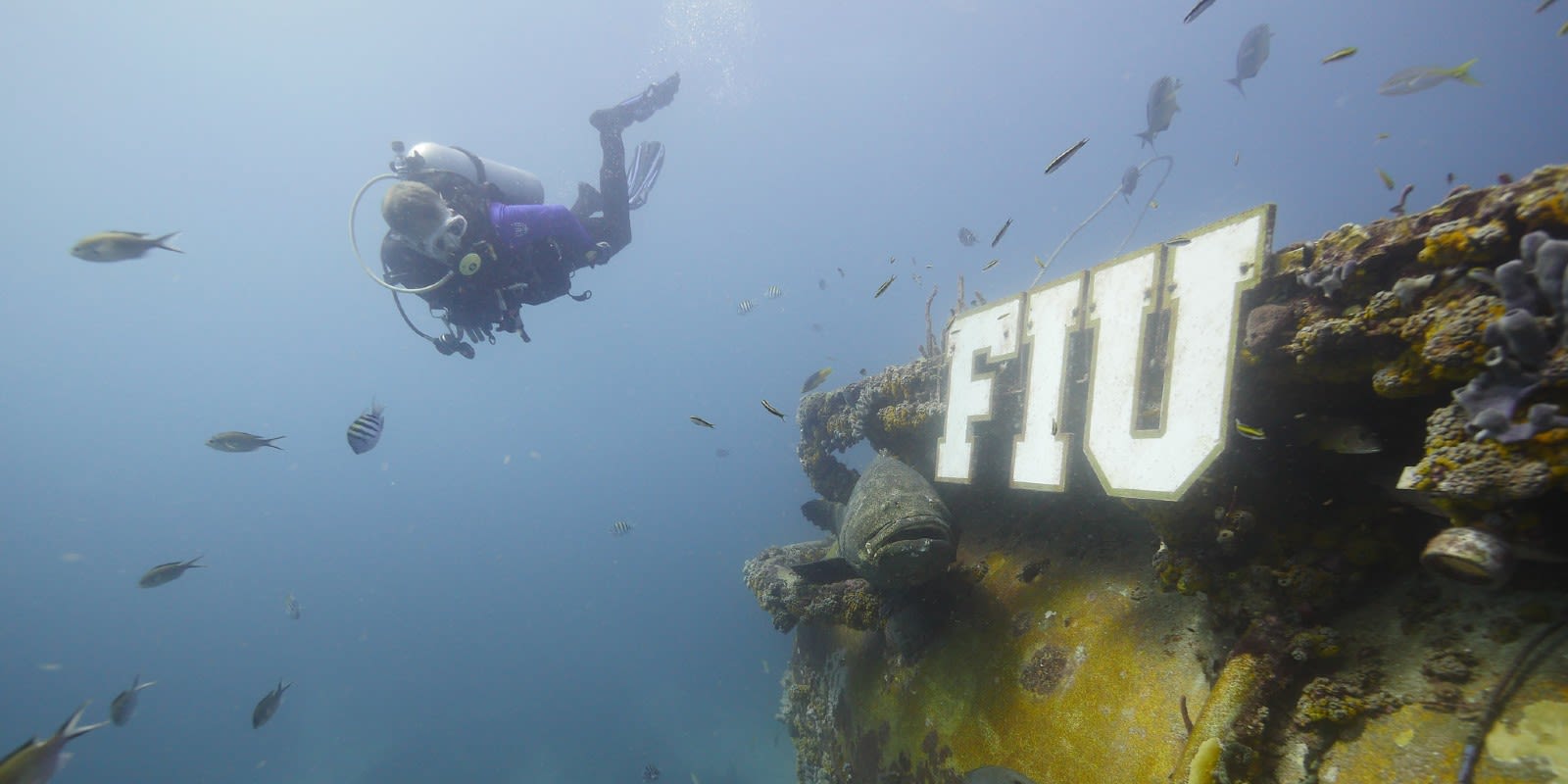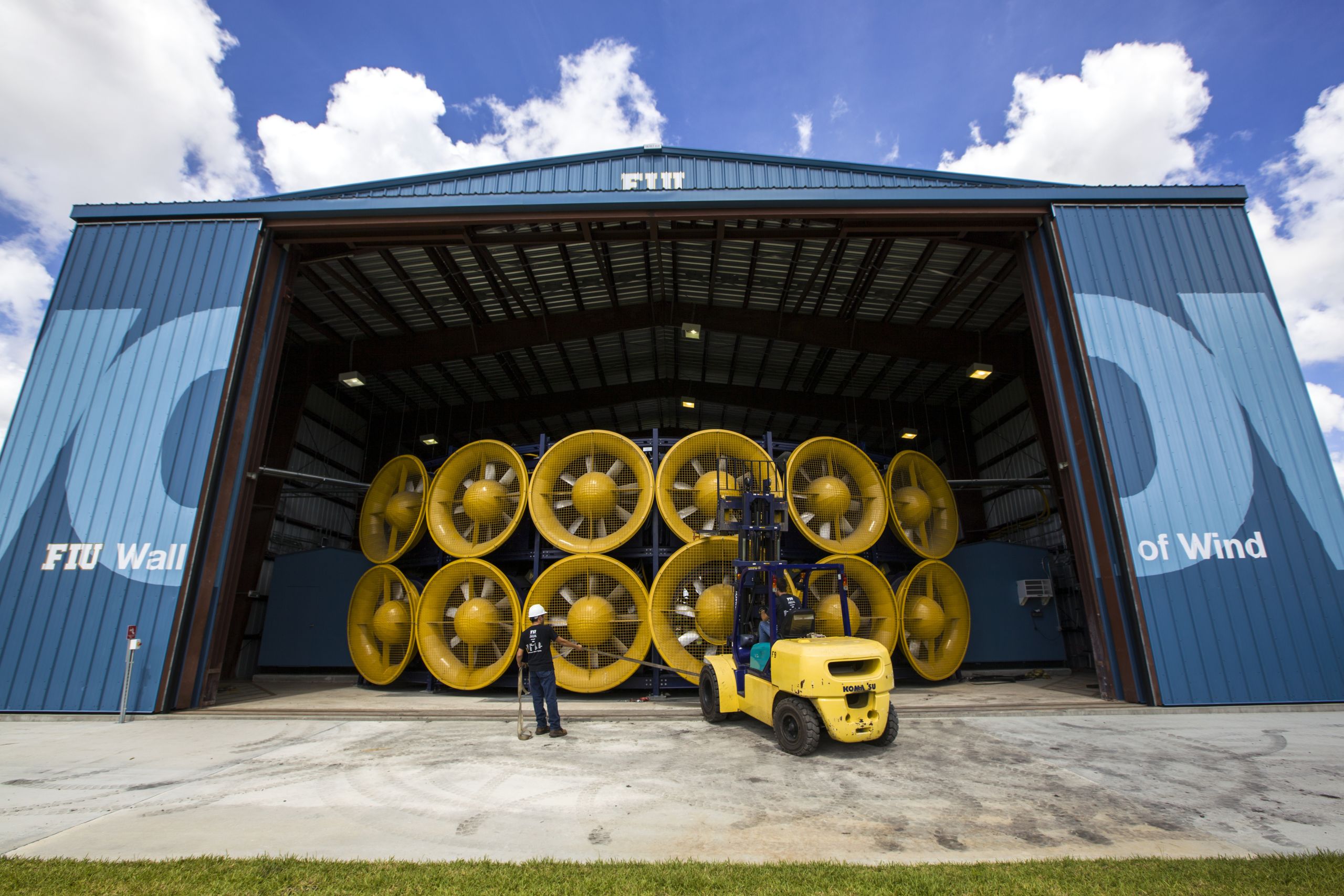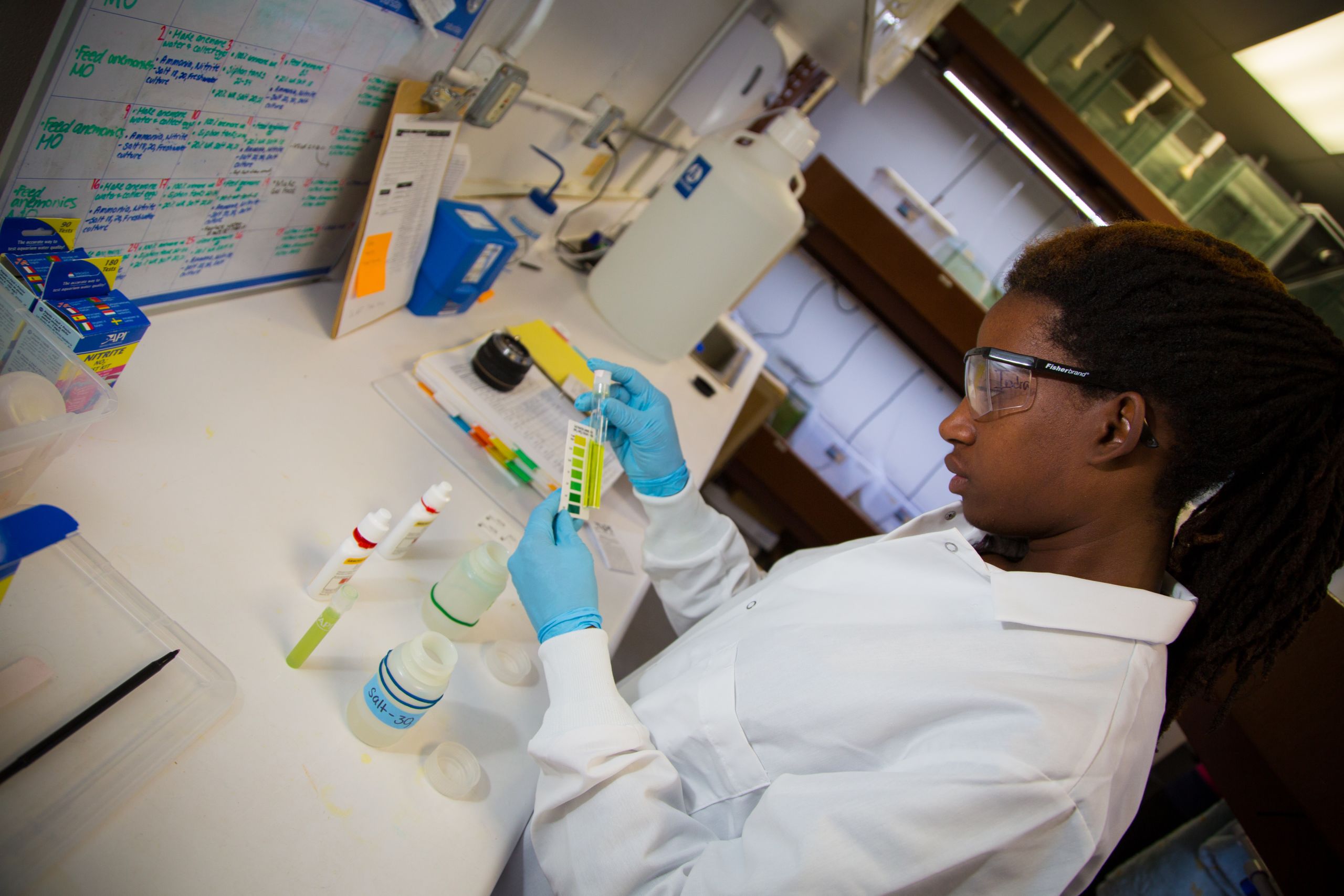Ensuring a sustainable Earth
FIU scientists conduct research on every continent with a singular goal in mind

Making sure that nature and people thrive in a changing world.
Today’s environmental challenges require real solutions. At FIU, our science-based research programs have gained global recognition for developing scalable solutions to the region’s, nation’s and world’s cascading environmental challenges. Our researchers are protecting the present while ensuring an inspiring future. Our efforts have resulted in legislative actions around the globe that are protecting endangered species and securing a more sustainable planet.
Harnessing the intellect and creativity of our scientists has expanded our influence on issues such as ecosystem restoration, ensuring healthy oceans and resilient building. At our Institute of Environment, FIU is pioneering critical research from ridge to reef. At our Extreme Events Institute (EEI)— which houses our International Hurricane Research Center— scientists are engaging in research, training and applications to reduce disaster losses, particularly hurricane losses, and improve risk management in the United States and Western Hemisphere. And our Institute for Resilient and Sustainable Coastal Infrastructure (InteRaCt) is the only federally funded and designated center in the country with a focus on developing advanced bridge engineering solutions.
FIU’s approach is yielding real results with lasting impact.
Securing a sustainable future globally
FIU’s Global Water for Sustainability Program (GLOWS), with more than $78 million in funding, brought clean water solutions, education, training and outreach programs to developing countries throughout the world, including Rwanda, Tanzania, Georgia, Haiti and Burkina Faso. We produced water management plans, education programs, and helped develop the water leaders of tomorrow for the countries we worked with. Our proven track record and successful partnerships resulted in FIU receiving a United Nations UNESCO Water Chair in Water Security and Gender Equity.
Impact: The UNESCO Chair has brought together dozens of nations worldwide to address cybersecurity threats on water security infrastructure and connected more than 500 experts across the world to use science to tackle the challenges of the Grand Ethiopian Renaissance Dam.
In partnership with universities throughout South America as well as Cornell and the Wildlife Conservation Society, FIU leads the Amazon Waters Initiative and the Citizen Science for the Amazon Project. These programs provide high-level risk analyses to predict impacts of future dams on migratory fish that are both a critical food source and a major economic driver.
Impact: Together with the Nature Conservancy and private companies, FIU scientists are designing, building and deploying low-cost water quality sensors so local communities and fishermen can track water quality issues in near-real time.
FIU is no. 9 in the world for Positive Impact on Life Under Water, according to Times Higher Education Impact Rankings.
FIU leads in global shark conservation. Led by a team of marine scientists from FIU, Global FinPrint is the largest global survey of reef sharks and rays, providing critical data for conservation and management needs worldwide. The global network—comprised of more than 700 volunteers and 121 scientists from 89 universities and other organizations—has collected more than 15,000 hours of footage. The project – with its first results just published in Nature – identifies the bright spots and trouble spots for sharks and provides the toolkit for countries to protect or rebuild their shark numbers.
Impact: The project has led to a shark fishing ban in the Dominican Republic, a nationwide ray sanctuary in Belize, and informed global management.
FIU’s Tropical Conservation Institute has spearheaded the repatriation and sustainable reintroduction of African bongo into the wild. Bongo were feared to be on the very brink of extinction. The initiative is a partnership between FIU, Zoo Zurich and the Lewa Wildlife Conservancy to support bongo antelope and black rhino recovery efforts in the Mt. Kenya ecosystem.
Impact: Our efforts are preserving a future for this species. And by protecting bongo, the water supply for 80 percent of people in Kenya is secured.

FIU's autonomous surface vessel is equipped with sensors to measure temperature, dissolved oxygen, turbidity and chlorophyll, which can be an indicator for algae.
FIU's autonomous surface vessel is equipped with sensors to measure temperature, dissolved oxygen, turbidity and chlorophyll, which can be an indicator for algae.
Assuring a sustainable future locally
Closer to home, FIU's monitoring programs span decades, chronicling changes to ecosystems, effective mitigation strategies and long-term impacts of short-term climate events. We've provided the science to inform the largest environmental restoration project on the planet — the Florida Everglades. The National Science Foundation’s Florida Coastal Everglades Long Term Ecological Research Network is based at FIU in partnership with 25 other U.S. institutions.
Impact: FIU scientists—working with the Miccosukee Tribe of Indians—provided the scientific data that determined Florida’s water quality criteria, a policy that remains today.
FIU created the state’s first Sea-Level Solution Center, housed in the Institute of Environment, to develop a community-sensitive research unit and clearinghouse for essential data, infrastructure plans and long-term sustainability actions needed to cope with sea level rise.
Impact: FIU has partnered with academic, government and NGO leaders of Greater Miami & the Beaches to create the Resilient305 Collaborative. The collaboration yielded a plan that is currently being implemented to create a resilient Miami of the future.
In search of solutions to storm surge, FIU is working closely with the Storm Surge Unit (SSU) of NOAA’s National Hurricane Center, located on the west side of our main campus.
Impact: FIU faculty developed the Coastal Estuarine Storm Tide Model, which is now being used for operational research to assist SSU’s forecasting of oncoming storm effects along the United States and Caribbean.
Building unique research platforms
Our Wall of Wind is the only university-based hurricane simulator capable of producing Category 5 hurricanes (157mph and above). Designated by the National Science Foundation as one of nine major U.S. Experimental Facilities for engineering research, Wall of Wind is viewed by many as being potentially as effective for wind engineering as crash testing was for the automobile industry, which led to the development of air bags. Wall of Wind users and clients include government agencies, major U.S. and international private sector firms, and other universities.
Impact: Florida building codes have been changed as a result of materials tested at our facility.
The Medina Aquarius Program at FIU is dedicated to the study and preservation of marine ecosystems worldwide. The program is enhancing the scope and impact of FIU on teaching, research, educational outreach, technology development and professional training. At the heart of the program is the one-of-a-kind Aquarius Reef Base, the world’s only undersea research and education laboratory.
Impact: Aquarius has reached more than 1,000,000 students through virtual field trips.
FIU is leading the development and deployment of camera and data collection systems worn by animals on land and at sea, providing critical data to help understand and protect species.
Impact: For the first time, scientists deployed animal-borne cameras on pangolins — the world’s most trafficked wild mammal. The information collected will advance conservation plans in partnership with the parks and wildlife authorities of Cote d’Ivoire and all across West Africa.

FIU’s Wall of Wind Facility, a 14-foot-high, 12-fan Hurricane Simulator, recreates the power of 157 mph winds to protect our coastal communities from life threatening storms.
FIU’s Wall of Wind Facility, a 14-foot-high, 12-fan Hurricane Simulator, recreates the power of 157 mph winds to protect our coastal communities from life threatening storms.
Inspiring a sustainable future
Faculty and students in our NSF-funded Center of Research Excellence in Science and Technology (CREST) on Aquatic Environmental Chemistry and the Environment have developed innovative laboratory technologies to quantify newly discovered contaminants in the field. The center’s work has provided research, education and training opportunities for 78 graduate and 155 undergraduate students as well as 15 post-doctoral fellows, 75 percent of whom are from under-represented groups.
FIU public health scientists have a current collaboration with Colombia’s University of Cordoba. The team is doing an assessment of the health impact of mercury and other heavy metals from gold mining in populations that live along Rio Atrato, one of the largest rivers in the world. This project received $3 million from Colciencia, a Colombian governmental agency that supports fundamental and applied research.
Recently, the Institute of Environment launched a transdisciplinary program that is the first of its kind in the nation. The Environmental Finance and Risk Management program will support emerging research involving risk management, resilience, sustainability and coupled systems and will involve more than 50 faculty members.
Florida International University, 2019-2020
- 71 U.S. patent applications filed
- 91 invention disclosures
- $226 million in annual research expenditures
- No.9 Life Below Water, Times Higher Education Impact World Rankings
- Among the highest 3 percent of universities to earn Carnegie R1 Very High Research Designation.
Institute of Environment, 2010-2020
FIU’s hub for university-wide resilience programs, including environmental finance, environmental resilience, conservation and innovative, sustainable built environments
- 135 faculty, post-docs from across FIU
- 800 peer-reviewed journal article by institute faculty
- $214 million in external funding
- Research on all 7 continents and the world’s oceans

Southeast Environmental Research Center (SERC) Ecotoxicology and Risk Assessment Laboratory at FIU.
Southeast Environmental Research Center (SERC) Ecotoxicology and Risk Assessment Laboratory at FIU.
This content was paid for and created by Florida International University. The editorial staff of The Chronicle had no role in its preparation. Find out more about paid content.



